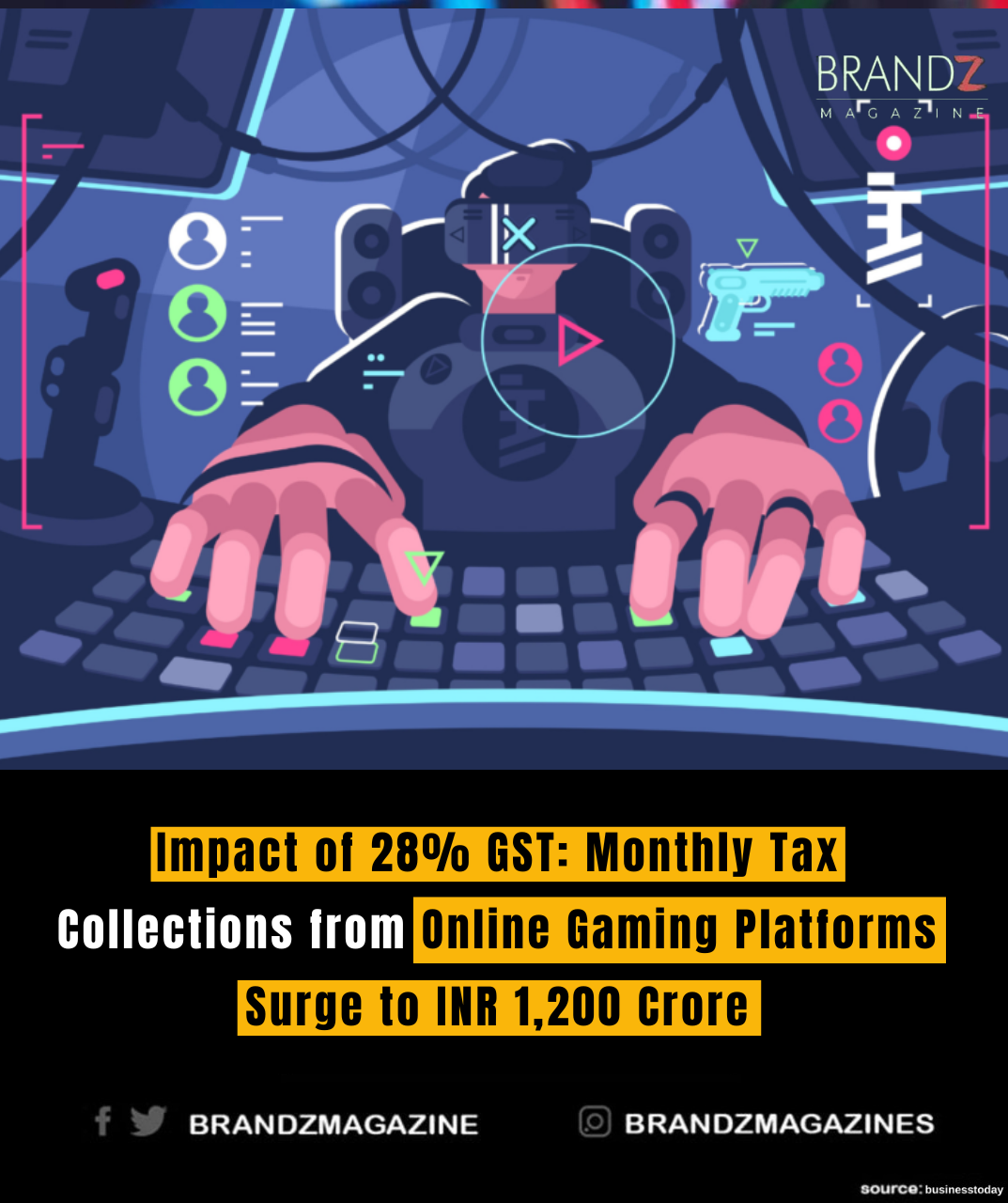
The imposition of a 28% Goods and Services Tax (GST) on online gaming platforms in India has led to a significant boost in monthly tax collections, with figures soaring to an impressive INR 1,200 crore. This substantial increase underscores the burgeoning popularity of online gaming and the government’s efforts to regulate and capitalize on this rapidly growing sector.
The decision to levy a 28% GST on online gaming platforms was implemented in accordance with the government’s aim to streamline tax structures and enhance revenue generation from digital services. Previously, online gaming platforms were subject to an 18% GST, but the recent hike to 28% has resulted in a notable surge in tax collections, reflecting the sector’s robust growth trajectory.
The rise in tax collections can be attributed to several factors, including the growing user base of online gaming platforms, the proliferation of internet connectivity, and increased consumer spending on digital entertainment. With more individuals turning to online gaming as a form of leisure and recreation, the demand for gaming services has witnessed a significant upsurge, translating into higher tax revenues for the government.
Moreover, the imposition of a higher GST rate has incentivized online gaming platforms to enhance their compliance efforts and ensure adherence to regulatory norms. By imposing a higher tax rate, the government aims to promote transparency, accountability, and regulatory compliance within the online gaming industry, thereby fostering a more conducive environment for sustainable growth and development.
The surge in tax collections from online gaming platforms highlights the sector’s growing contribution to India’s digital economy and overall tax revenue. As online gaming continues to gain traction as a mainstream form of entertainment, it has emerged as a key revenue generator for the government, presenting new opportunities for revenue diversification and economic growth.
Furthermore, the increase in tax collections underscores the importance of effective taxation policies in harnessing the potential of emerging digital sectors. By implementing appropriate tax measures, the government can not only enhance revenue streams but also regulate and formalize previously unorganized segments of the economy, thereby promoting financial inclusion and economic stability.
However, while the rise in tax collections from online gaming platforms is indicative of the sector’s economic significance, it also raises questions about the potential implications for consumers and industry stakeholders. The imposition of a higher GST rate could lead to increased costs for gamers, potentially impacting consumer behavior and spending patterns in the long run.
Moreover, the government’s decision to levy a 28% GST on online gaming platforms has sparked debates regarding the appropriate tax treatment of digital services and the need for a balanced regulatory framework. Critics argue that such a high tax rate could stifle innovation, hinder market growth, and disproportionately burden consumers, especially amid the economic challenges posed by the COVID-19 pandemic.
In conclusion, the surge in monthly tax collections from online gaming platforms following the imposition of a 28% GST underscores the sector’s growing economic significance and revenue potential. While the increase in tax revenues reflects the government’s efforts to regulate and capitalize on the booming online gaming industry, it also raises important considerations regarding consumer affordability, industry sustainability, and the need for a nuanced regulatory approach. As the online gaming landscape continues to evolve, policymakers must strike a balance between taxation, regulation, and industry growth to ensure a vibrant and sustainable digital gaming ecosystem in India.

